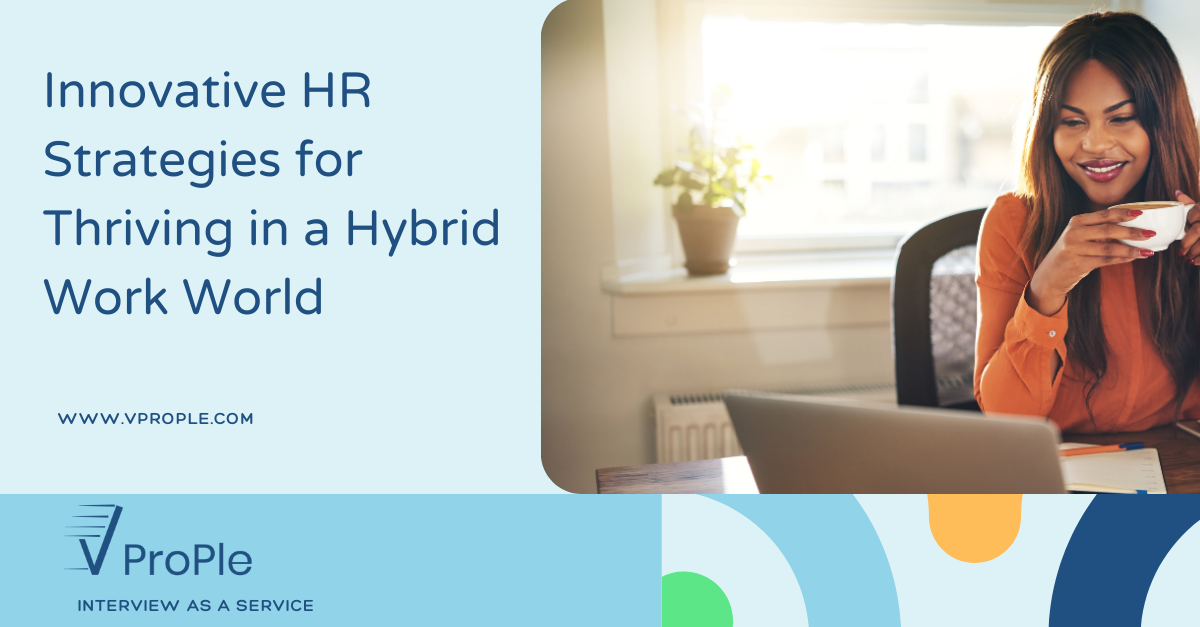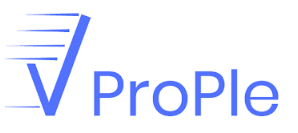This website use cookies to help you have a superior and more relevant browsing experience on the website.
Innovative HR Strategies for Thriving in a Hybrid Work World
-
06/09/2024

Have you ever wondered what the future of work will look like? The answer lies in the hybrid work model! This innovative model combines the best of in-office and remote work and offers unmatched flexibility and convenience to employees. That is why, despite recent pushes to return to office, many organizations either have or are planning to implement a hybrid job model permanently.
While some companies are trying their hardest to persuade employees into the office, most are also facing many challenges in designing a perfect hybrid work model that offers the same level of flexibility, productivity, teamwork and engagement that working in-office brings. HR professionals play a crucial role in designing company models that can result in higher retention rates and greater business productivity and engagement.
They have deep insights into their company’s structure, culture, requirements and goals. How HRs address DE&I, hybrid work model and employee well-being issues leaves a lasting impact on the fortunes of their company.
But, HR leaders are struggling to come up with a holistic strategy to shape the future of hybrid work. Let us dive deeper into this blog to understand the hybrid work model meaning and learn about innovative strategies HRs can use to thrive in a hybrid work world!
Understanding Hybrid Work
As we discussed above, the hybrid work model offers the best of both worlds: employees can conveniently work from the comfort of their homes while also collaborating with colleagues in the office. This work model is particularly beneficial for creative, research and technology positions as employees working in these positions require both independent work and team collaboration.
The hybrid work setup became popular during the pandemic and has only grown since then. Although this work model offers flexibility, it also presents challenges that need strategic management. Therefore, companies need to understand the details of this new model and create innovative HR programs to keep employees working in the hybrid model engaged.
HR initiatives to improve employee engagement are the only way to address the unique challenges and opportunities of the hybrid work environment.
|
Did you know? According to a survey, 82% of businesses are expected to implement a hybrid model of working by 2025. |
What Are the New HR Strategies That Can Help in Hybrid Talent Management?
Hybrid talent management involves creating a culture where employees can connect and present their ideas and opinions effectively while maintaining productivity in business operations. Here is how HR leaders can make this possible and seamless:
Technological Tools and Solutions
Online collaboration tools and platforms: Virtual video conferencing tools like Teams, Zoom and Slack allow employees to collaborate and share ideas. It is how these tools promote seamless collaboration and eliminate the communication barriers between remote and office colleagues.
In addition, platforms such as Slack’s Donut and TINY Pulse add a fun element to hybrid work. From online office breaks to pulse surveys, these tools keep the vibe upbeat.
Performance tracking tools: Tracking performance is essential in a hybrid work model, and employees should understand that it is about empowerment and not micromanagement. Tools such as Trello and Asana offer transparent dashboards and real-time updates and help HRs track employee performance and celebrate wins.
Besides incorporating the latest technology, HRs should also invest in employee training to ensure the employees can use the new technology confidently.
Cultural Considerations
Some people highly value face-to-face communication. Therefore, HRs need to look for new creative ways to maintain those interpersonal relationships. They can do so by hosting a virtual team lunch or schedule regular check-ins to just catch-up with employees about their well-being. Simply put, the key lies in maintaining a positive environment while implementing hybrid work practices.
Preparing for The Future
HR professionals should stay informed and keep up with future work trends. It is the only way that can help them prepare for the future and remain competitive in attracting top talent. Here are some actionable steps for HRs to get ready for the future:
- Undergo training in conflict management and communication skills to prioritize conflict resolution. Implement regular check-ins and open forums where workers can raise their concerns.
- Recognize the changing trend of employees and embrace gig work, freelance, project-based, contract and part-time work positions to create more employee flexibility.
- Offer the employees access to online courses, training programs and certifications, as this process of continuous learning and upskilling will keep them engaged.
- Provide employees with the necessary support and resources to experiment with new ideas and follow new approaches.
Conclusion
The future of work is here, and it is hybrid! This shift has transformed talent management and has presented new opportunities for improvement and innovation. HR leaders must adapt to these changes as it is the only way to attract and retain top talent. The future of recruitment now belongs to those who adapt to the new hiring trends and technologies and lead with purpose.
So, this was all about the hybrid model of working, but hello? HR leaders? What about remote interview outsourcing that can help you enhance candidate experience, save time, streamline hiring, and ultimately hire top talent? If you want to learn more about how the interview as a service by VProPle can help you streamline hiring and hire the best candidates, check out our website today. Let us navigate the future of recruitment together!
Frequently Asked Questions (FAQS)
Q1- What are HR challenges with hybrid work?
Ans. Communication barriers, potential misunderstandings, maintaining team cohesion, technology disparities and monitoring productivity are some common challenges of hybrid work culture.
Q2- What are the benefits of a hybrid work culture?
Ans. The key benefits of a hybrid work culture include enhanced flexibility, global talent access, reduced costs, higher retention rates and increased diversity.
Q3- How to increase employee engagement in a hybrid workplace?
Ans. HR leaders should facilitate seamless communication with hybrid workers. In other words, they should listen to the hybrid employees, combat Zoom fatigue and engage in one-on-one interactions with them.
Besides this, appreciating employees and fostering a culture of well-being can also result in increased employee engagement in a hybrid work environment.


